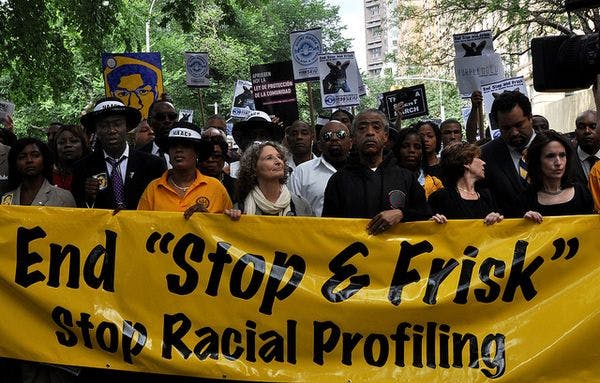The Case against Stop-and-Frisk
By Vincent Warren
The Center for Constitutional Rights (CCR) won its legal challenge to the New York City Police Department’s stop-and-frisk policy more than three years ago. But suddenly the phones in our offices are ringing off the hook again. Reporters from the New York Times to Mic.com to All In with Chris Hayes are asking us to explain why stop-and-frisk as a national policy solution would be a terrible idea.
The answer: It would be a terrible idea for the same reasons it was a terrible idea all along, reasons that led CCR to sue the NYPD to end it. Stop-and-frisk, a police practice of temporarily detaining or searching a person, violates the U.S. Constitution if police stop people based on their race or without a “reasonable suspicion” that they’ve committed a crime.
In New York City, the police did both, in violation of the Fourth and Fourteenth Amendments. The scope of the NYPD’s stop-and-frisk program—hundreds of thousands of people were stopped every year—put entire communities under siege. It created tensions between the police and the neighborhoods they patrol. And yes, it was ineffective in its stated goal of reducing crime.
At the height of stop-and-frisk, in 2011, there were 685,000 stops, 106,669 major felonies, and 515 murders in New York City. By 2015, stops fell 97 percent to 23,000. At the same time, major felonies came down to 105,453. And murders dropped to 356.
Click here to read the full article.
Keep up-to-date with drug policy developments by subscribing to the IDPC Monthly Alert.
Thumbnail: Michael Fleshman CC
